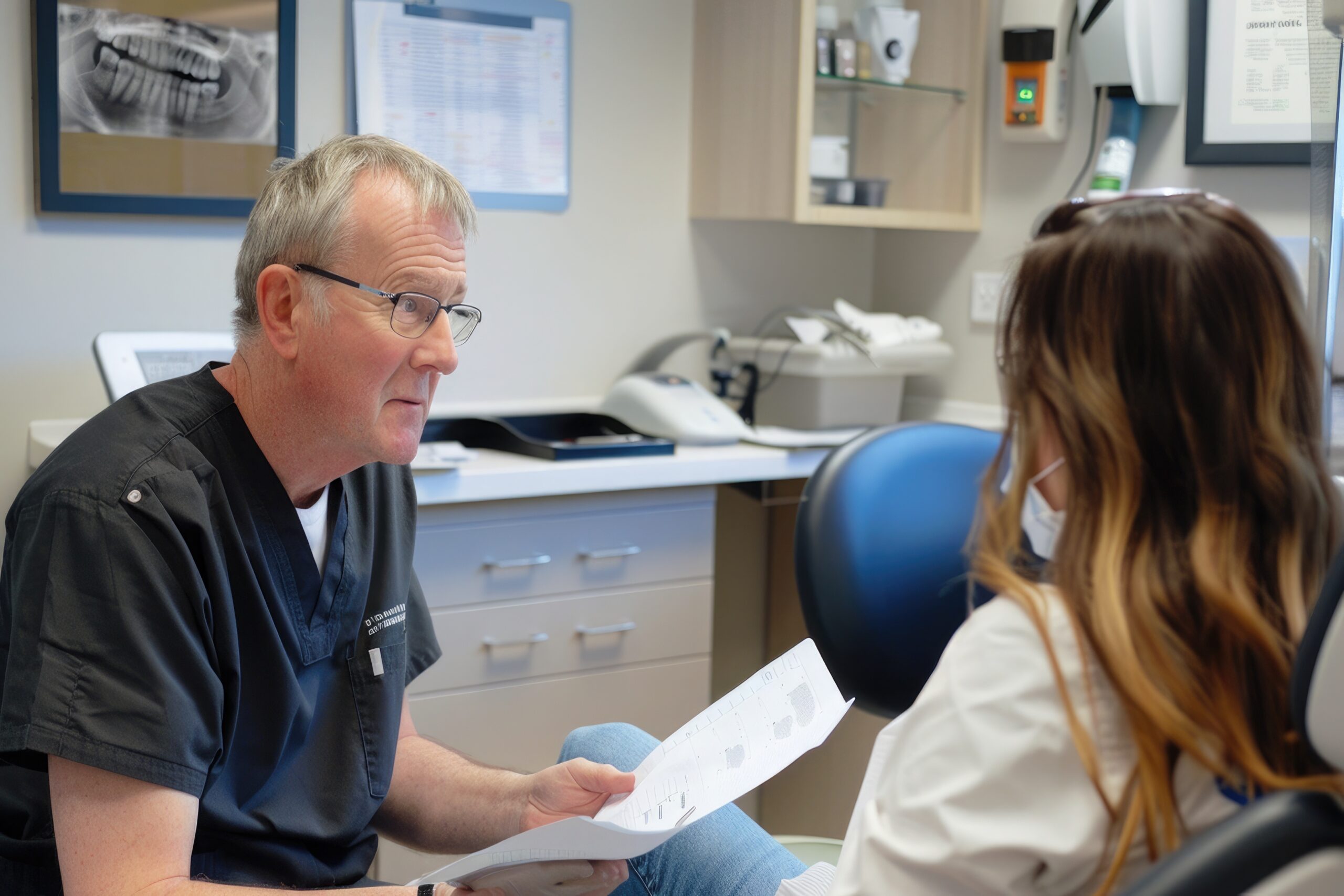Informed consent is far more than a signature on a form—it’s the cornerstone of ethical, legal, and professional dental practice in the UK. Whether you're a newly qualified dentist or an experienced clinician, ensuring that every patient understands their treatment options, associated risks, and possible outcomes is not only essential for patient care but also critical in protecting your professional reputation and your practice.
In this blog, we explore what informed consent means within UK dentistry, why it matters, and best practices to help you stay compliant, confident, and in control.
What is Informed Consent in Dentistry?
Informed consent is the process by which a patient voluntarily agrees to a proposed dental treatment after being fully informed of its nature, risks, benefits, and alternatives. It reflects the trust and collaboration between clinician and patient.
Dentists must ensure that patients not only receive the necessary information but also genuinely understand it and make decisions free from pressure. Consent may be verbal, written, or implied, but clarity and proper documentation are essential.
Legal Backing: The Montgomery Ruling
The 2015 Montgomery v. Lanarkshire Health Board case changed the landscape of medical and dental consent in the UK. It established that practitioners have a duty to inform patients of any material risks involved in a proposed treatment, as well as reasonable alternatives. It’s no longer about what the “reasonable dentist” would disclose—it’s about what the individual patient needs to know.
Why Does Informed Consent Matter?
Respect for Patient Autonomy
Informed consent champions a patient's fundamental right to choose what happens to their body. It empowers individuals to make informed decisions about their dental care, moving from a dentist-led approach to a collaborative one where patient values guide treatment.
Legal Obligation and Risk Mitigation
This isn't just an ethical ideal; it's a legal must in the UK. Dental professionals must secure valid consent before treatment or face legal risks like assault or negligence claims. Regulatory bodies like the General Dental Council (GDC), through their Standards for the Dental Team, and the Care Quality Commission (CQC), via Regulation 11 of the Health and Social Care Act, explicitly mandate obtaining proper consent. Detailed documentation of the consent process, therefore, is crucial legal evidence to demonstrate compliance with these standards and protect against potential disputes.
Ethical Imperative
Beyond legalities, informed consent builds trust. It promotes transparency and honesty, ensuring that treatment aligns with a patient's understanding and personal values. This ethical duty balances the dentist's role in providing care with the patient's right to decide.
Improved Patient Outcomes and Experience
When patients understand their diagnosis, treatment options, risks, and benefits, they make better choices. This clarity reduces anxiety and often leads to greater compliance with aftercare, resulting in better long-term oral health and a more positive experience.
Professional Standards
Adhering to informed consent principles is central to professional standards set by bodies like the GDC. It's a continuous process, not a one-off event, ensuring patient involvement at every stage of their dental journey and demonstrating good practice.
Key Components of Effective Consent

1. Clear, Patient-Centred Communication
Dentists must explain diagnoses, procedures, risks, benefits, and alternatives using plain, jargon-free language. It’s vital to check the patient’s understanding—don’t just speak to them, engage with them.
2. Voluntary Agreement
Patients must feel free to make their own decisions without coercion. This includes the right to refuse treatment or to change their mind at any point, even after giving initial consent.
3. Capacity to Consent
You must ensure your patient has the mental capacity to make informed decisions, as outlined in the Mental Capacity Act 2005. For children and vulnerable adults, additional legal frameworks apply, and consent must be obtained from a parent, guardian, or legal representative when appropriate.
Best Practices for Consent in Dentistry
Use Both Verbal and Written Consent
While verbal consent may suffice for routine treatments, written consent is crucial for invasive, complex, or high-risk procedures. Always document what was discussed and agreed upon in the patient’s clinical notes.
Tailor the Consent Process
Not all patients process information in the same way. Be mindful of language barriers, literacy levels, and disabilities. Use interpreters, diagrams, or digital tools where necessary to support understanding.
Keep Accurate, Detailed Records
A well-documented consent process protects you in the event of a complaint or legal challenge. Records should include:
- Date and time of the discussion
- Summary of risks and options explained
- Patient questions and your responses
- Confirmation of understanding
- Signatures, if applicable

Avoiding Common Pitfalls
Don’t Rush the Process
In a busy practice, it can be tempting to gloss over the consent process. However, skipping steps can lead to misunderstandings, complaints, or even litigation. Take the time to ensure each patient is fully informed.
Never Assume Understanding
Just because a patient nods or signs a form doesn’t mean they truly understand. Encourage questions and offer opportunities to reflect or come back with concerns.
Poor Documentation = Increased Risk
Failing to document conversations around consent is a common yet costly oversight. Your notes are often your only defence if a claim arises.
Team Approach to Informed Consent
Informed consent is not the sole responsibility of the dentist—it’s a team effort. From dental nurses to treatment coordinators and receptionists, each team member contributes to creating an environment where patients feel respected, well-informed, and empowered to make decisions.
Consistency in communication across your team reinforces trust and minimises the risk of misunderstandings. Holding regular training sessions and role-specific refreshers ensures that everyone understands their part in the consent process and is equipped to support it confidently and competently.
Final Thoughts
Informed consent isn’t a tick-box exercise—it’s a legal and ethical obligation that also builds trust and enhances the patient experience. By adopting clear, patient-focused communication and meticulous record-keeping, you protect not only your patients but your practice and your professional future.
Looking to Join a Practice with Strong Clinical Governance?
At Verovian Dental Recruitment, we work with dental practices that prioritise compliance, professionalism, and patient care. Whether you're a dentist seeking a new opportunity or a practice in search of quality talent, we can help. Register with us today to learn more about roles that value ethical excellence and best practices.




